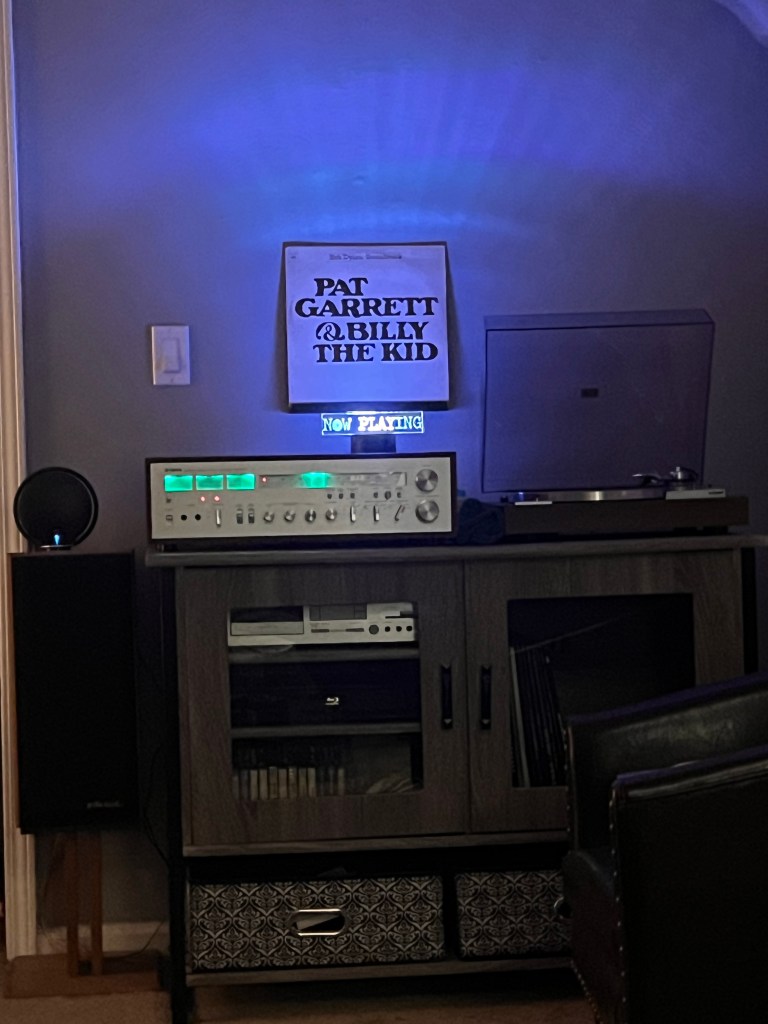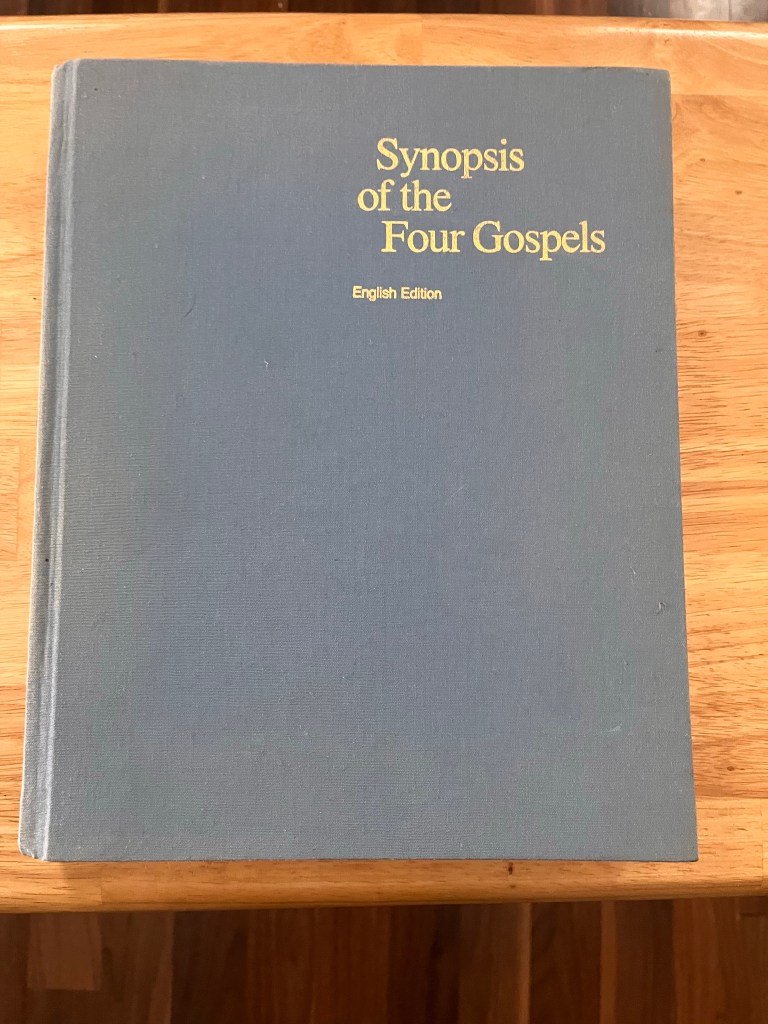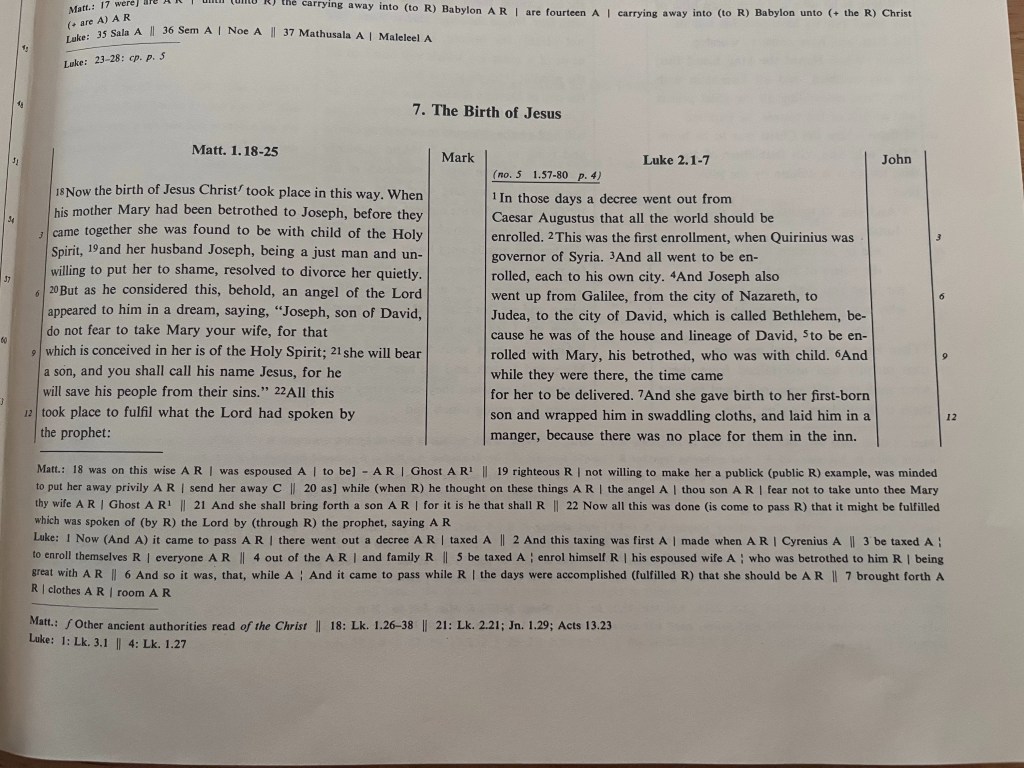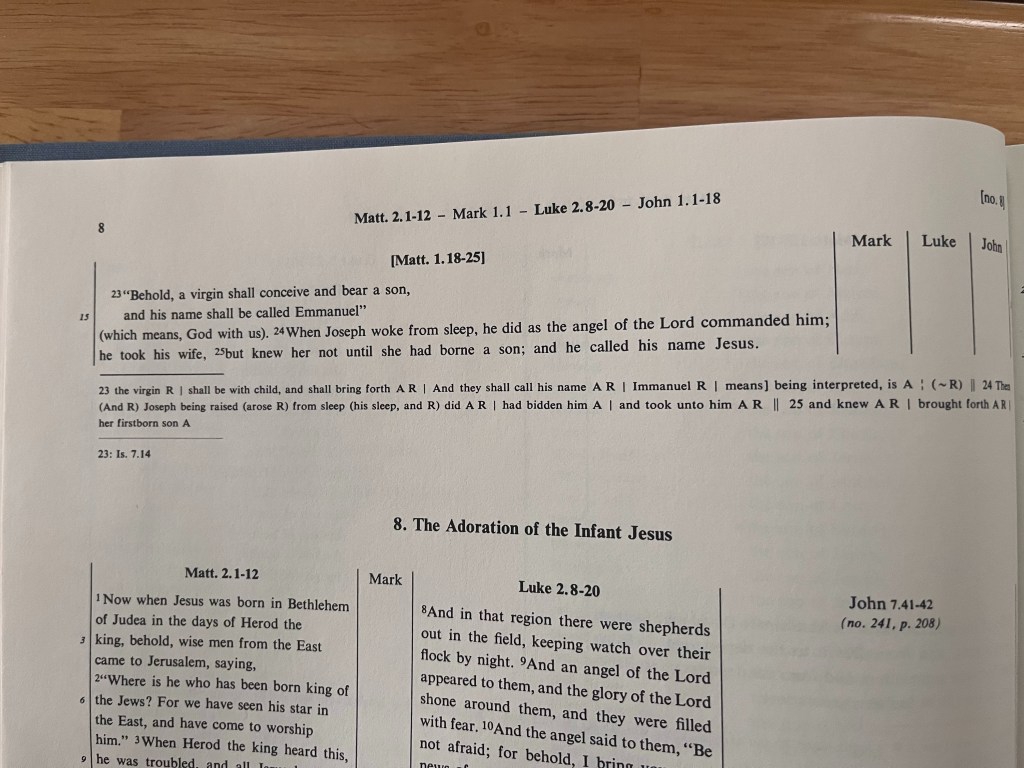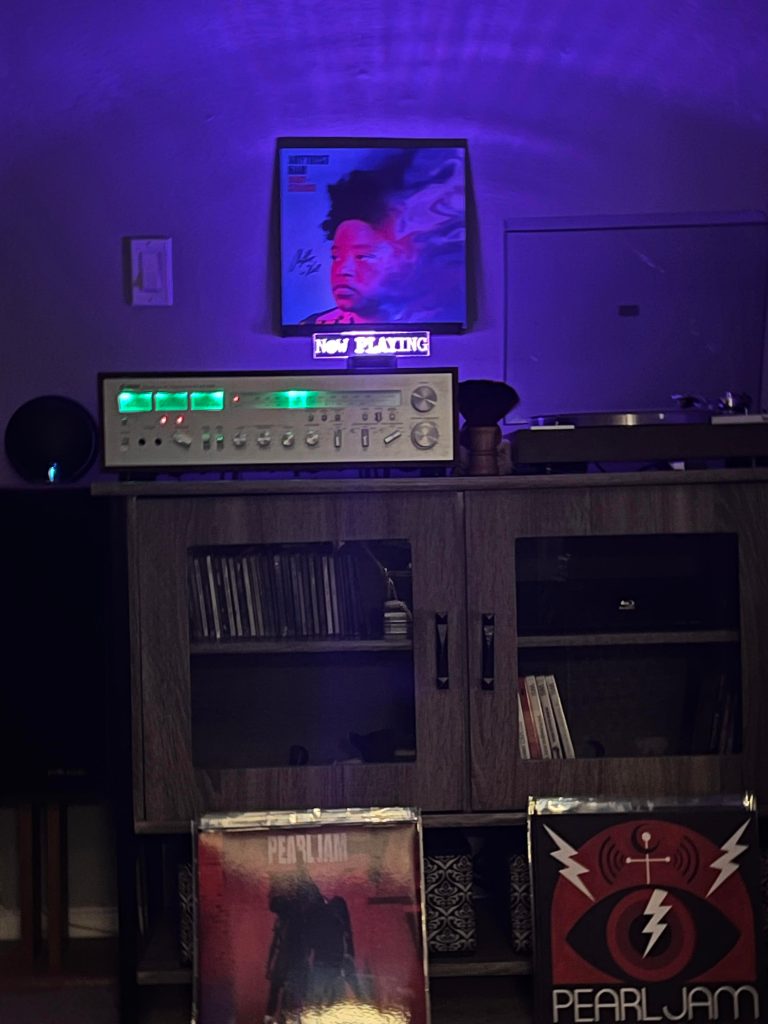
And the trees are stripped bare
Of all they wear
What do I care?
And kingdoms rise
And kingdoms fall
But you go on…and on…
Yesterday was the first day of October!!! I should have spent the day thinking about all things ghoulish, ghostly, gory or otherwise Halloweenish. My Halloween costume! Getting my wife to watch at least two movies from the Halloween franchise with me again. * And of course, planning a Halloween Party!!!!
Instead, I spent the day thinking about Christian rock music, the Jesus Movement, Third Wave Pentecostalism, Neoorthodoxy, Reinhold Niebuhr, the Emergent Church movement and basically all things White Evangelicalism in the last hundred years or so.
I have not done this in a long time. And yes, it is as horrible as it sounds!
I want to be thinking about Halloween. But this isn’t a normal Halloween. Of course, not much of anything has been normal for my wife and I since COVID. She’s a Long Hauler since June of 2020. That’s mostly her story to tell. But it has of course, effected both of us. Especially financially.
That is part of this abnormal Halloween. You see, she used to be our primary provider. On paper, it sounds like I should have a promising career by now. I am a 46 year old white male with a Masters degree. Instead, I have 20 some years experience in retail, with a few moments dabbling in social work, sales, call centers, factories and of course, 18 months in ordained ministry.
You see, my two religious degrees are useful almost exclusively in fairly conservative, white Evangelical churches. But, in 2015, I was forced out of a ministry position for the following absurd reasons:
I identified as an LGBTQ affirming minister on my Facebook profile. I wasn’t even out – at least to the church – as a bisexual at that point.
In my very first sermon there, in June of 2014, I declared that what happened to Trayvon Martin was an absolute miscarriage of justice. The senior pastor I was serving under, literally received hate mail about my sermon.
Then, in the early days of August, 2014 I went a city council meeting where many citizens of Grand Rapids, Michigan gathered to demand that GRPD officers must wear cams when patrolling neighborhoods. This was of course in the days following the execution of Michael Brown by police officers and the eruption in Ferguson Missouri. Many of us who gathered, were invited by the burgeoning Black Lives Matter movement in Grand Rapids. I wore my clergy collar and I spoke on the microphone in favor of police reform.
Finally, and this was really the straw that broke the camel’s back, I said in a Bible study that we as Christians didn’t need to fear the word myth. I taught that Myth is a sacred category amongst scholars in most of the world’s major religions. And I stated that parts of the book of Genesis are Myth; and that the Earth (and entire Universe) was billions of years old. This offended a senior member of the congregation, who then withdrew their presence and their financial donation anytime I would preach or lead an adult Bible study.
So a few years ago, in my early 40’s, after leaving ministry, a devastating divorce, getting remarried and giving up alcohol (which was slowly destroying my life), I finally discovered cannabis! As someone who lives with CPTSD, anxiety, depression and some level of ADHD and OCD like symptoms, this was a life changing positive experience for me: mentally, physically, emotionally and yes, spiritually!
So here I am in Jackson Mississippi in October. We are here, first and foremost for a warmer climate to hopefully mitigate some of my wife’s Long COVID symptoms. Secondly, the cost of living here is much more affordable than the cost of living than in Grand Rapids.
And finally, we are here because I firmly believe in the power of cannabis to change lives for the better. It was legalized this last year, in Mississippi for medicinal purposes. So here I am with a Masters in Divinity, 20 years in retail, a few years of ministry and a few years growing cannabis and serving as a Budtender in Michigan. I think I have finally found my “calling.” or at least a career I won’t find miserable with daily demands to be spiritually and intellectually dishonest with myself and others.
It’s probably a better fit for me than any teaching role, sacred or secular. Pastoral ministry didn’t used to be such a bad gig. At one time pastors visited parishioners, hospitals, prayed with the sick and actually taught people about “godly things” like righteousness, justice, and compassion. After all, I was merely espousing basic science in that Bible study. Along with a theological framework that at one point was considered fairly conservative stuff in Christian circles. But that was before modern day Christian dominionism took complete control of nearly every last white Evangelical church in the United states, and with it, most of the Republican Party.
A quick Google or Wiki search should suffice to illustrate to even the most unfamiliar reader, that the most prominent adherents of this grotesque, present day amalgamation of utter theological and political bullshit include: Calvinist Reconstructionists, Charismatic and Pentecostal Christians, and the most dangerous, the proponents for a “New Apostolic Reformation.”
I have spent most of my life, as a quiet, fat, closeted queer, looking for Christ, while narrowly escaping all of these very particular fringe groups within Christianity. By the Grace of an indifferent Universe I guess?!?!?
I don’t know!?!? I am still trying to figure all of that out in therapy and daily meditation. What I do know is that I did NOT inherit any of these particular and increasingly and purposely obtuse ways of being Christian from my mother. My mom was a tongues speaking, demon rebuking, Hell-fire and brimstone Pentecostal at one time. And she was a Reagan Republican when I was a small child!!! But by the time she died, my mom had become a moderate to progressive Evangelical (especially by today’s standards) and for better or worse, to my utter shock as a teenager, a Clinton Democrat!
I can still remember a 15 year old me, telling her I was worried she could go to Hell for voting for old Bill. But my mother never became nearly as fundamentalist or as radicalized as I was becoming at that time. I know that now. But at times in my life, I have blamed all my trauma from Christian fundamentalism all on her. I am sorry mom.
And I am also deeply sorry that I ever introduced anyone to this toxic form of Christianity. By the time she died, my mom had told and showed me multiple times that she held out hope of Heaven for people who commit suicided (she struggled with ideation most of her life), people of other religions, and even people who reject the church. And whether proactively or inadvertently (sometimes both), she also taught me to always question authority and at the very least, scrutinize the metaphysical claims of Christianity for your damn self!
Every time we switched churches as a child, it was because my mother had decided for our whole family that a male Pastor was preaching incorrectly or acting unjustly toward her husband, her children or others in the church who were often ignored by all but her: the poor, dirty, differently abled and mentally ill. She even cleaned house regularly for a mentally ill woman, with two rambunctious kids, a fitly house and a husband who was a self proclaimed “Satanist.” Hell, my mother was once kicked out of a Bible study for several months for asking the class if anyone else ever “wondered if the Jews were right about Jesus and that maybe, rather than the Messiah, he was himself some sort of antichrist?!?!?”
I used to be haunted, embarrassed, and worried for my mom about that particular incident, even more than I was about her voting for Bill. I had to tell myself it was her mental illness speaking in order to avoid nightmares of her being torture for eternity in Hell. Now, these are some of my fondest and most cherished moments of my mom, looking back.
I’m not really a Christian anymore. At least in the sense that I no longer ascribe to a literal interpretation of the Nicene or Apostle’s Creeds as the only appropriate lenses for reading the Bible. But that has nothing to do with theology, geology, archeology, evolutionary biology or any of the usual culprits blamed for people disbelieving basic tenants of the Christian faith It’s because of 8th grade astronomy that my 14 year old son can understand.
That’s still not why I left the church!!! As in every single time, place, religion and culture, there are both “good” and “evil” people and forces at work in every sector of Christianity. But the good folks are getting harder and harder to see and hear. They are being drowned out by this new fangled hyper conservatism that is destroying our county, and I worry could destroy our planet in the not too distant future.
However, I have already spent far too much time today thinking about religion, politics and the deep concerns that can often only be afforded by being from a Bible Belt, Middle Class, white, Christian background.
At one point in time, there was no such thing as Christian rock music. It was birthed primarily by folks of the well meaning Jesus Movement. They were the hippie Christians that “saved my mom from Catholicism.” In less than a hundred years, they wrote new praise and worship music (often with modern publishing rights) to usurp and in most cases, completely replace traditional hymns that were hundreds of years old and steeped in nearly two millennia of Christian tradition. They held Christian rock concerts, started Maranatha!, Vineyard Music, Hillsong and a thousand other Christian music groups, record labels, book companies and storefronts and even a film industry, complete with movies about the end of the world.
U2’s second album was an early experiment by an already established rock band, on a major record label, to be marketed to the then nascent, Christian music format. The album was sold in Christian bookstores. Commercially and artistically the album is a pretty weak spot in the band’s catalog.
Still, I’ve always loved this song. It’s minor key, somber tone and lyrics with vague allusions to the Biblical Psalms, seems as good of a soundtrack as any for a cool October day. But for the first time in my 46 years of life, I have had a completely different purview for all things, Autumn, October and Halloween. This year, I watch as “the trees are stripped bear of all they wear” and I genuinely wonder in the 90 degree Jackson, Mississippi weather if the leaves will turn colors here? Will it ever get cold enough for Hoddie Season here? Will my wife and I make it here?
In addition to my 8 years of school, two degrees in Religion and 18 months in ordained ministry, I have “served” most of my life in retail. I’ve done entry and middle level supervision in retail. And the thought of climbing the later to upper management, just to make more money sounds like a miserable, sad and wasted life. I’ve obviously retained a bit of the oft repeated concern in the passages of the Bible that money and political power corrupt. I didn’t learn that from my brushes with Third Wave Pentecostalism, Neoorthodoxy, Reinhold Niebuhr, the Emergent Church or their spiritual heir, the “New Apostolic Reformation.” I learned from my mom, and from 8 years, of academic training in an historic Christian tradition. Training to read the Bible through the lenses of the Nicene and Apostle’s Creeds. But most Evangelical churches don’t even do that anymore.
As I watch the church I broke apart from bend more and more towards the pursuit of money and power to the point that some self proclaimed Christians have been able to call themselves “Trump Christians” with a straight face, I can’t think of a better word to describe what mainstream, white Evangelicalism has become other than “satanic.”
While I don’t use this word to point to a “metaphysical reality,” I do use it to refer to how greed, wasteful accumulation of resources, a suspicious disposition towards all non-Christians, and a lack of love towards anyone with a contradictory life experience have combined and produced a spirit of violence and hostility throughout the white, Evangelical church in America. That “spirit” has pervaded conservative church and political culture on a global level. Scary Shit!
I think I am going to need some candy and a movie to divert my mind and heart for a few hours from the truly “evil” forces at work in our world. Forces that are trying to destroy the very fabric of a society, already daily decreasing in civility. We are already – it feels to me – are spinning way out of orbit for a world much too cold. It’s become to cold for simple things like love, mercy, compassion, embrace. White, Conservative, Evangelical Christianity hasn’t merely followed suit. It’s led the way. it feels like all of the citizens of the globe are dangling from a proverbial cliff. And that’s scarier than anything to do with Michael Meyers.
*A combination of any of the following are acceptable: John Carpenter’s original and it’s direct sequel Halloween II, Halloween 4,5 and 6 or the Rob Zombie reboots. Unacceptable are any of the attempts to bring back Jamie Lee Curtis as Laurie Strode (H2O, Resurrection or the latest Carpenter sanctioned, David Gordon Green mess of films).





